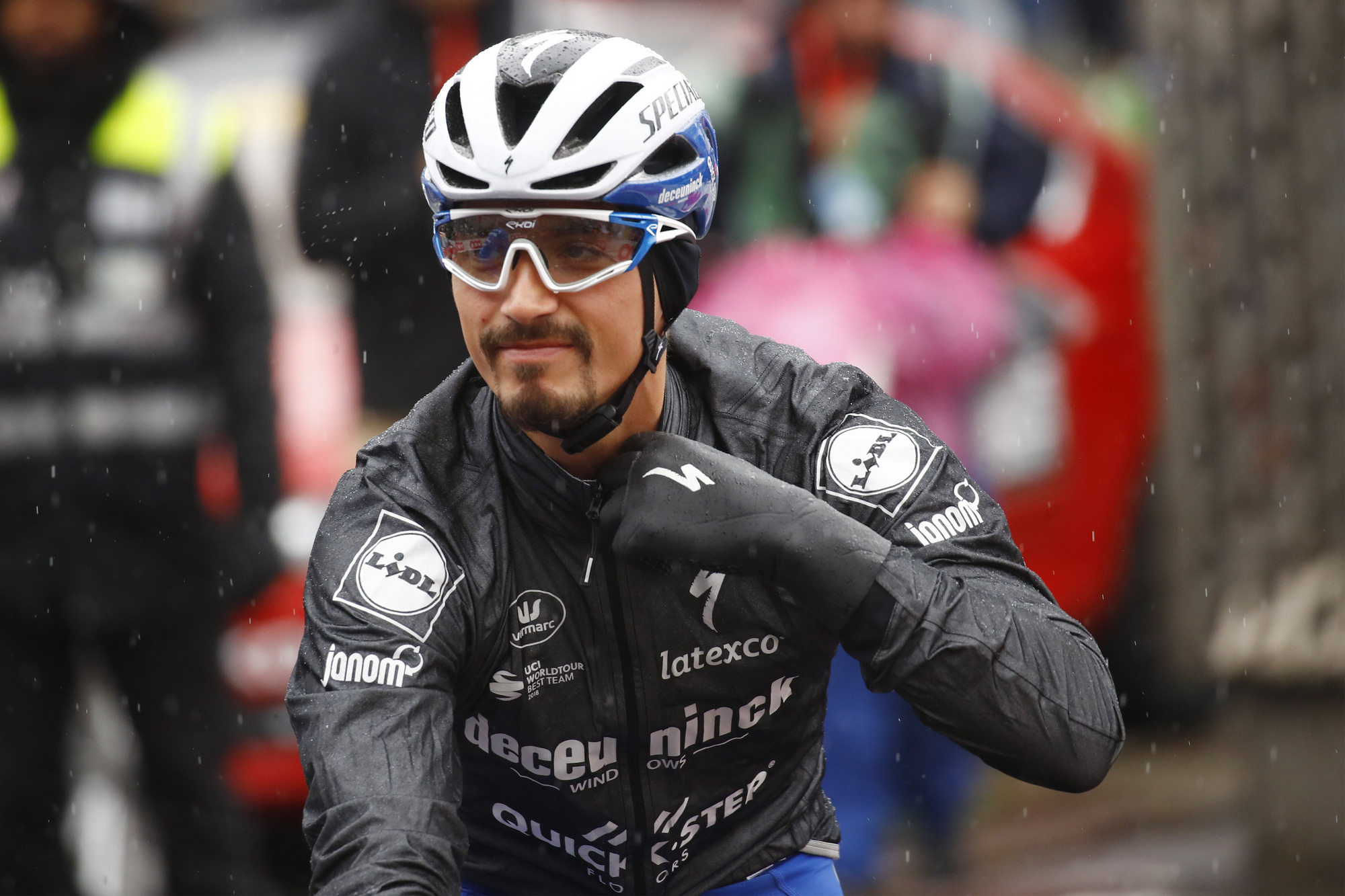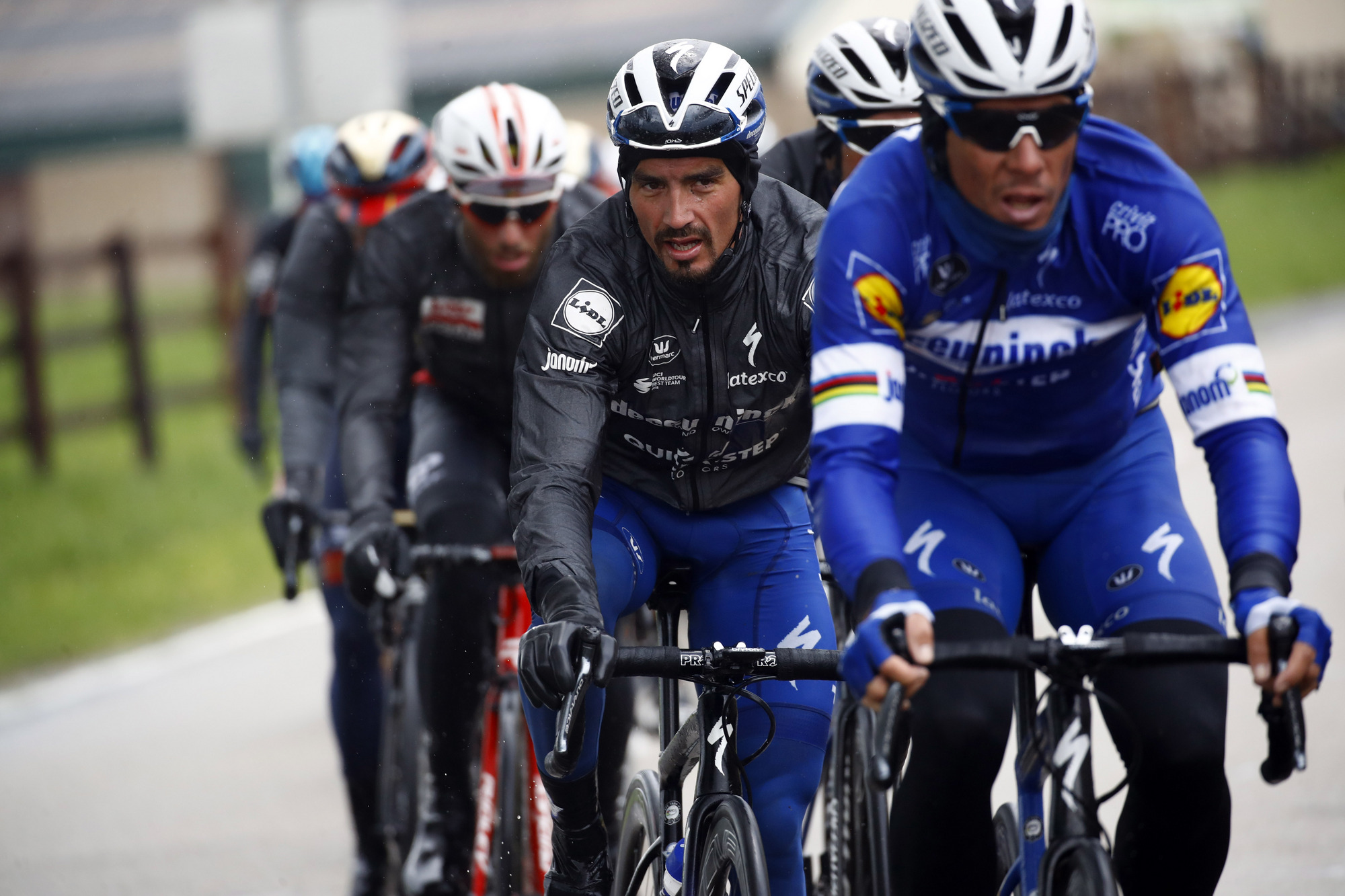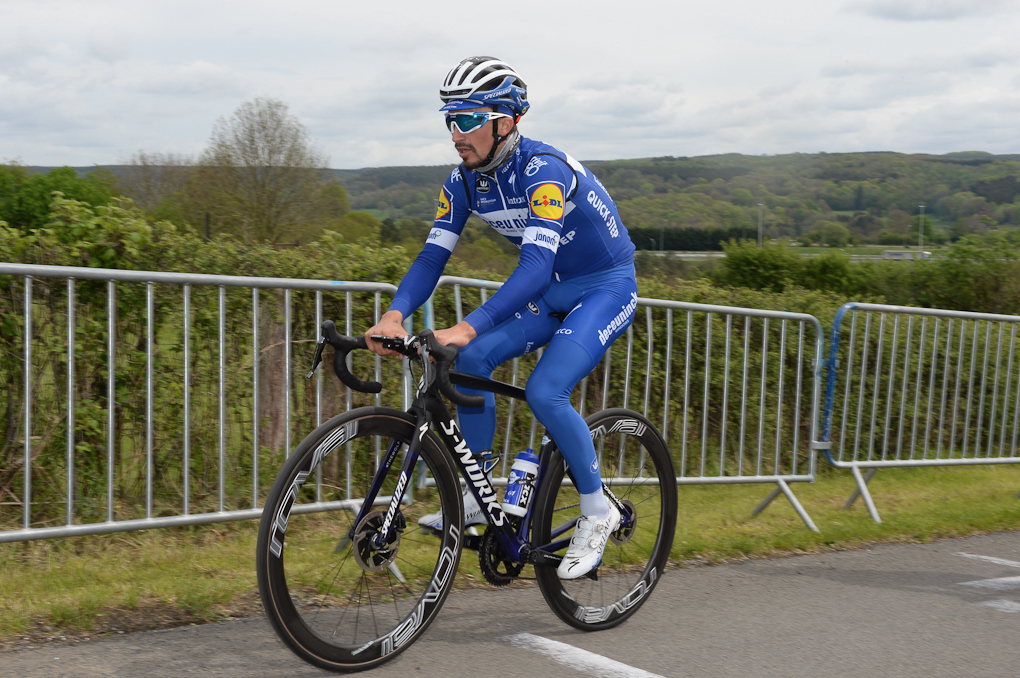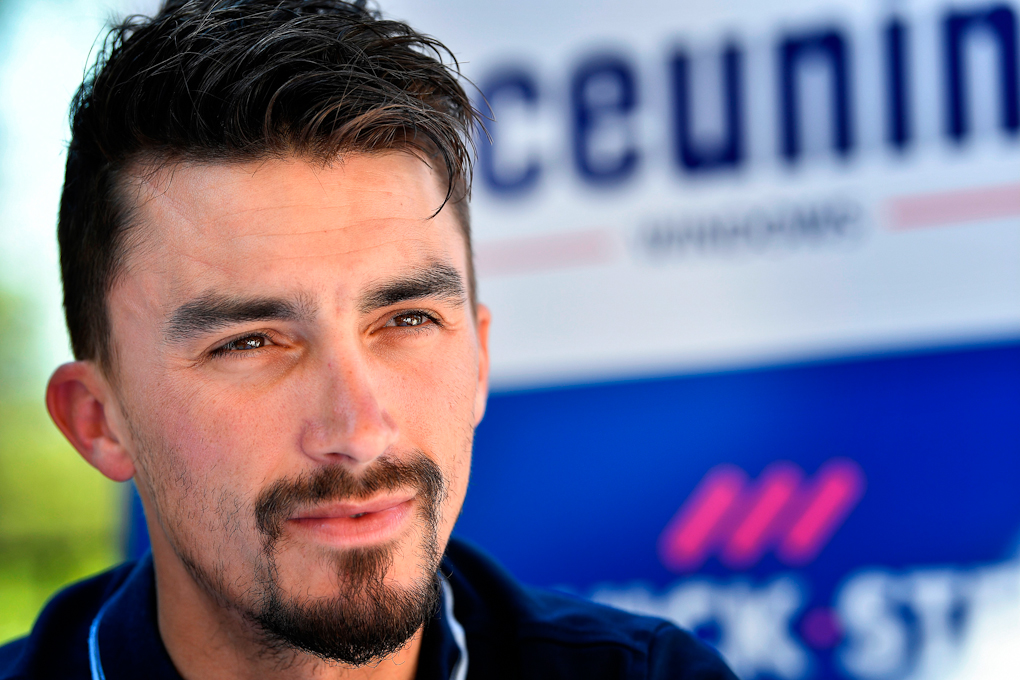Alaphilippe finishes Liege-Bastogne-Liege with no regrets and an 'empty tank'
'I was scraping right at the bottom' says Deceuninck-QuickStep favourite




When Julian Alaphilippe (Deceuninck-QuickStep) finally descended from his team bus after his Liège-Bastogne-Liège defeat, the cheer from waiting fans that went up was almost as big as if he had won.
Fuglsang wins Liège-Bastogne-Liège
Annemiek van Vleuten wins Liège-Bastogne-Liège Femmes
Gesink sustains broken collarbone and pelvis in Liege-Bastogne-Liege crash
Valverde crashed in training three days before Liege-Bastogne-Liege
Fuglsang lands victory at Liege-Bastogne-Liege a decade after debut
Formolo, Schachmann give Bora-Hansgrohe two on the podium at Liege-Bastogne-Liege
He finished 16th after he faded on the Cote des Roche aux Faucons, and his face was grim when he crossed the line and he jumped over some low-lying barriers after the line to get to the bus as quickly as possible.
But despite the disappointment, Alaphilippe took his defeat gracefully, re-emerging from the bus, to spend time signing autographs for young fans.
As the Frenchman pointed out to the journalists afterwards, he had much to celebrate about 2019, and if Liège had not worked out as well as he wanted, "many riders would be delighted with what I’ve achieved so far this year.
"I have no regrets because I finished this race totally empty, I was scraping right at the bottom of the tank, it's been quite a while since I've finished a race like that," Alaphilippe told reporters. "So I feel like I've been knocked flat but even so I'm still satisfied with my race."
Deceuninck-QuickStep took an aggressive line in the race, pushing hard to keep their rivals under control, briefly sending Philippe Gilbert up the road before trying to keep a dangerous 10-rider break in hand.
Once that was reeled in, it was up to Alaphilippe to try to respond to the final attacks. But his legs failed him at the critical moments.
Get The Leadout Newsletter
The latest race content, interviews, features, reviews and expert buying guides, direct to your inbox!
"We gave it everything. We tried to take charge of the race, perhaps we tried too hard, even when we didn't have the obligation to do that," Alaphilippe said. "Patrick Lefevre told us that whatever happened, our spring had been a success, and winning today would have been the cherry on the cake."
In any case, Alaphilippe pointed out, being ahead was an advantage on a day when there were crosswinds and the roads were often grimy due to the heavy rainfall. "It was a difficult day," he said.
"But I knew that Roche-aux-Faucons was the key to the race. I was only a few metres away from being with the best. The weather wasn't the weather I prefer, but I was up there in the final."
He said that early in the race, though, alarm bells had rung in his head because "I felt less explosive, more exhausted than in other events. The weather didn't help me at all."
Alaphilippe praised Jakob Fuglsang (Astana) saying he deserved the win after "numerous duels with me. This course was better for him than Flèche, and I hope I'll come back here some day to try and win it."
Globally, though, Alaphilippe said he was more than satisfied with his spring campaign, with victories in races ranging - just to mention the one-day events - from Flèche Wallonne to Milano-San Remo and the Strade Bianche.
The Classics have barely ended and July is already beginning to loom fast on the horizon. In Alaphilippe's case, the Frenchman will now rest up a little, then head to Livigno for some altitude training before taking part in the Critérium du Dauphiné and the Tour de France.
Alasdair Fotheringham has been reporting on cycling since 1991. He has covered every Tour de France since 1992 bar one, as well as numerous other bike races of all shapes and sizes, ranging from the Olympic Games in 2008 to the now sadly defunct Subida a Urkiola hill climb in Spain. As well as working for Cyclingnews, he has also written for The Independent, The Guardian, ProCycling, The Express and Reuters.
